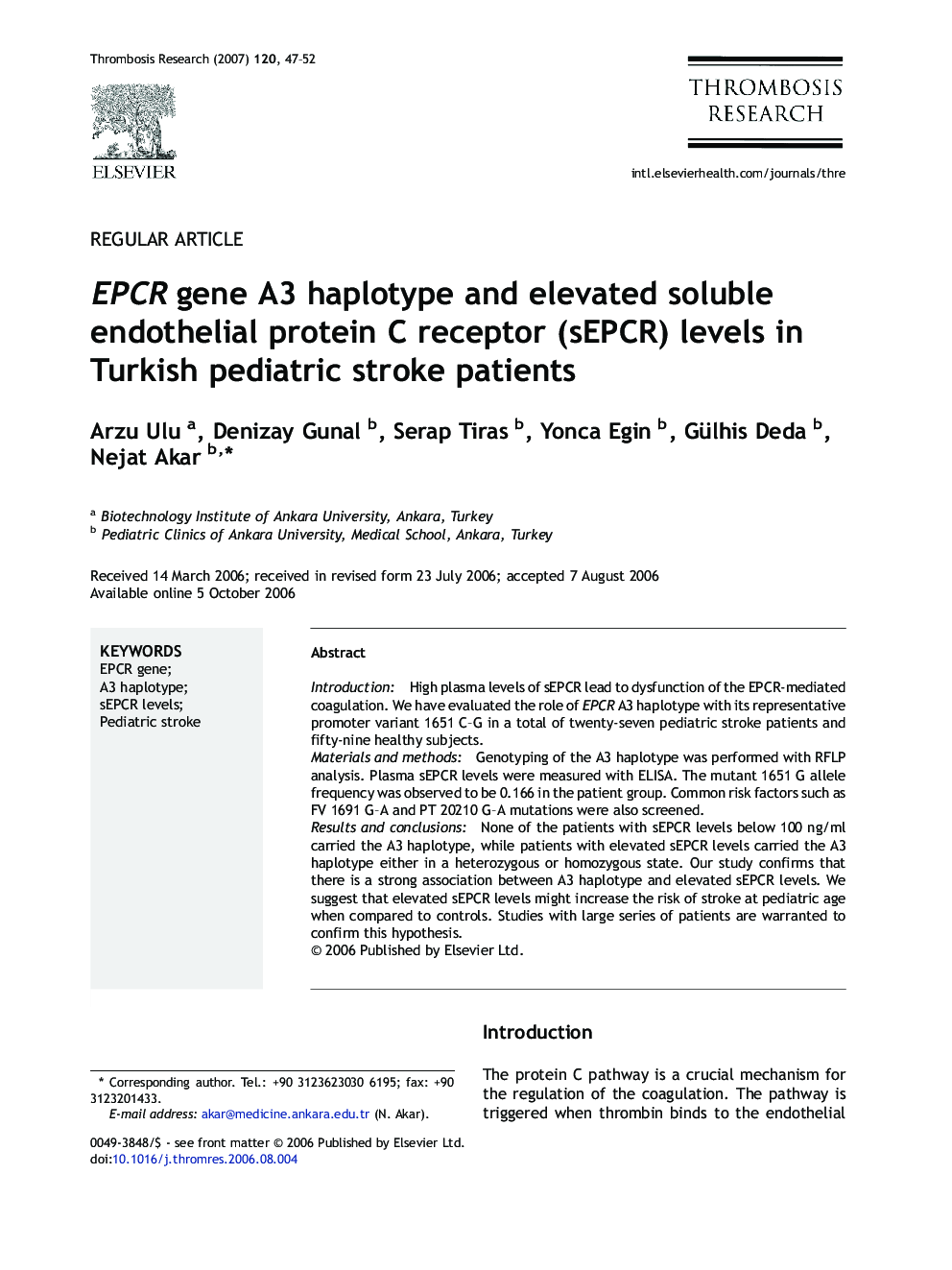| Article ID | Journal | Published Year | Pages | File Type |
|---|---|---|---|---|
| 3028464 | Thrombosis Research | 2007 | 6 Pages |
IntroductionHigh plasma levels of sEPCR lead to dysfunction of the EPCR-mediated coagulation. We have evaluated the role of EPCR A3 haplotype with its representative promoter variant 1651 C–G in a total of twenty-seven pediatric stroke patients and fifty-nine healthy subjects.Materials and methodsGenotyping of the A3 haplotype was performed with RFLP analysis. Plasma sEPCR levels were measured with ELISA. The mutant 1651 G allele frequency was observed to be 0.166 in the patient group. Common risk factors such as FV 1691 G–A and PT 20210 G–A mutations were also screened.Results and conclusionsNone of the patients with sEPCR levels below 100 ng/ml carried the A3 haplotype, while patients with elevated sEPCR levels carried the A3 haplotype either in a heterozygous or homozygous state. Our study confirms that there is a strong association between A3 haplotype and elevated sEPCR levels. We suggest that elevated sEPCR levels might increase the risk of stroke at pediatric age when compared to controls. Studies with large series of patients are warranted to confirm this hypothesis.
